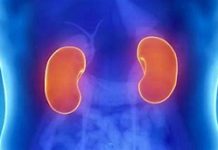A statement of noncompliance released by the UK’s Medicines and Healthcare products Regulatory Agency (MHRA) on Friday effectively bans in the EU medicinal products considered non-critical to public health from Pfizer’s Irungattukottai, India-based site following joint inspection by the FDA, MHRA, Australia’s Therapeutic Goods Administration and Health Canada, the first joint investigation by the four agencies.
According to MHRA’s statement of noncompliance, the inspection identified a critical finding in regard to sterility assurance of product. In addition, the agency found that the environmental monitoring program “was not based on a scientific justification and a number of areas of critical risk were not monitored.” It said sterilization activities featured “poorly designed autoclave load patterns that presented occluded surfaces and areas that were not free draining, SIP process that had pipework that was not appropriately sloped and also had manual interventions that were not appropriately detailed and all of the above issues were linked to a lack of scientific knowledge.”
Pfizer decided to temporarily suspend operations at the site earlier this month and MHRA is now calling on EU member states’ National Competent Authorities to evaluate how critical the products supplied by this manufacturing site are for their respective markets, and to enact measures to ensure continued supplies where appropriate.
FDA spokesman Kris Baumgartner also told Focus: “FDA frequently conducts joint inspections with its regulatory partners in the international arena and there are a number of reasons that trigger this collaboration. These activities serve to build confidence in other regulatory systems, promote a better understanding of the systems within these regulatory bodies, and also promote information sharing between regulators that have common objectives.”
The cooperative inspection also followed an FDA warning letter for the site in May 2013 and a FDA Form 483 with 23 observations from January 2014.
Inspection Details
According to the MHRA, “The inspection identified a critical finding that was in regards to sterility assurance of product. The deficiency covered a number of areas including building classification and segregation by pressure differentials, aseptic processes that had not been optimised to reduce the risk of microbial contamination, aseptic process simulation investigations that failed to identify root cause and take appropriate actions.”
The report also found that the environmental monitoring program “was not based on a scientific justification and a number of areas of critical risk were not monitored,” while sterilization activities featured “poorly designed autoclave load patterns that presented occluded surfaces and areas that were not free draining, SIP process that had pipework that was not appropriately sloped and also had manual interventions that were not appropriately detailed and all of the above issues were linked to a lack of scientific knowledge.”
The statement also called for the withdrawal of the site’s UK GMP certificate and said: “No future batches of non-critical Sterile product to be supplied to the EU while this statement of non-compliance remains in force. This prohibition does not apply for solid-dosage products such as tablets and capsules.”
Pfizer’s site, acquired from Hospira in 2015 as part of its $16 billion acquisition, produces at least 19 medicines, mostly antibiotics, including imipenem/cilastatin, meropenem, piperacillin/tazobactam, cefuroxime, ceftriaxone, ceftazidime and cefuroxime.










